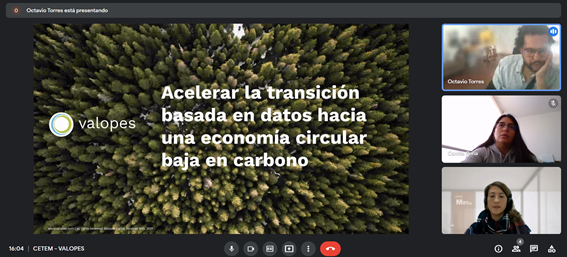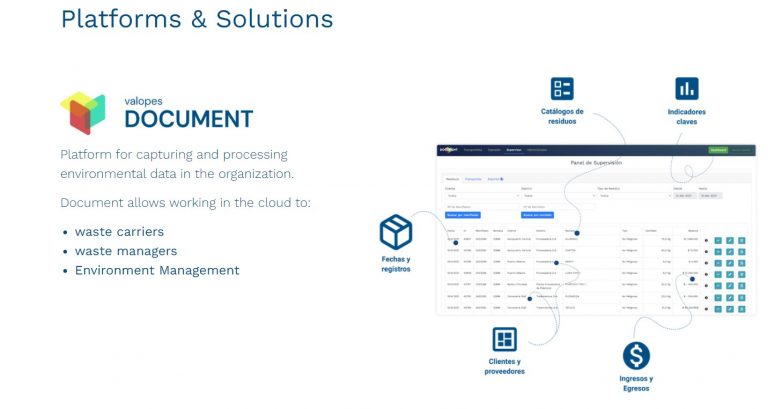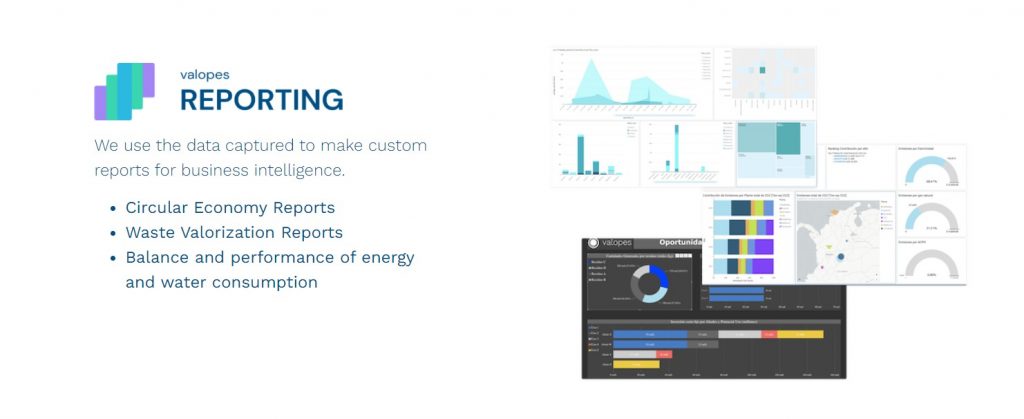The INSIGHT project is coming to an end and therefore, in the last weeks it has launched several results such as the e-learning platform, the INSIGHT training course or a blueprint together with MoU to get the support of different organisations in the promotion of Industrial Symbiosis.
INSIGHT has made an impact not only at local, regional, national or European level, as demonstrated by its network of contacts in South America.
Here is one of the stakeholders of the INSIGHT project, the Colombian company Valopes, who wanted to participate in an interview with us, which is presented below.

Q: We cannot start the interview in any other way than by asking, what is VALOPES? A: Valopes is Tech company focus on leading the data driven transitions towards a low carbon circular economy. Our cloud-based platform enables enterprises and municipalities to streamline their environmental flows from any stage along within their operation at key economic sectors. By digitizing the process of documentation and consolidating key information at the generations’ points & connecting enterprises to assure accountability and transparency. This regarding, energy & water consumption, waste management and carbon footprint contributions between other.
Q: Do you work in Latin America or also in Europe? A: Our experience has been in LATAM, we are currently starting the expansion of the solution to Europe. Where we are going to start a pilot this January with a UK company.
Q: We could say that your approach is the so-called “Twin Transition” paradigm, i.e., a green and digital transformation. Do you believe that this change should be implemented at the private level, or should public administrations also join this two-sided transformation? A: You have defined it very well, Valopes is that union, we help industry and cities to transform digitally their environmental flows such us energy, raw material & water consumption, goods manufactured, waste & byproducts management as well environmental contributions (carbon footprint). The solution is focused on both sectors and responds to the needs of each one, on the private sector side, to have a measurement of its industrial metabolism focused on their consumption. On the other hand, in the public sector. We enable monitoring the urban metabolism focused on prioritized economic sectors and with potentialities such as the generation of industrial symbiosis.
Q: In your case, are you applying the same type of solutions and approaches for private and public bodies? A: The high-quality technology implemented by Valopes is the same but with functionalities focused on the target sector. Basically, what we have developed is a platform that enables us to collect structured environmental data and commercial and industrial sites. This same technology is the one that can be employed by multiple factories and commercial sites in a municipality, and this data is shared to the environmental agencies to comprehend the flow of materials according to the key economic sectors that have been prioritized.
Q: What do you think are the most important barriers for organisations to implement industrial symbiosis and valorise their waste? A: In the case of Latin America, the early adopters of the Circular Economy are still few, the large companies at the moment do not have an economic solidity towards the environmental area which is a barrier in the process and it is necessary to strengthen the industry. The industry needs to move from legal compliance to systemic thinking with robust, technology-driven solutions. As well as for the cities they have a need to be empowered in their processes. The path we are embarking on is towards other regions and markets with more advanced environmental development where the solution offers great benefits.
Q: Do you think that workers in companies and even in the administration are sufficiently trained to implement this type of industrial symbiosis actions? A: In some cases, and we can say not in many, however we can say that there is more and more interest in training teams and generating circular solutions.
Q: Under this context, how could platforms such as Valopes Document or Valopes reporting help them? A: Facilitate day-to-day operations through the proper capture of environmental data, delivering real-time analytics for activity monitoring and data-driven decision making. This helps to identify consumption, gaps, success stories, operational effectiveness and GHG reductions. Meanwhile the best environmental practices registered in the platform are enabling us to automate the generation of bespoke portfolios of best practices to improve the environmental operation of our users.
Q: Finally, we close this interview, as well as thanking you for your participation in this space of the INSIGHT project, with a question about what the benefits of promoting sustainability and circularity are. A: At Valopes there will always be a determination to participate in projects like this because we believe that to generate sustainable and circular solutions, we need a variety of experts



